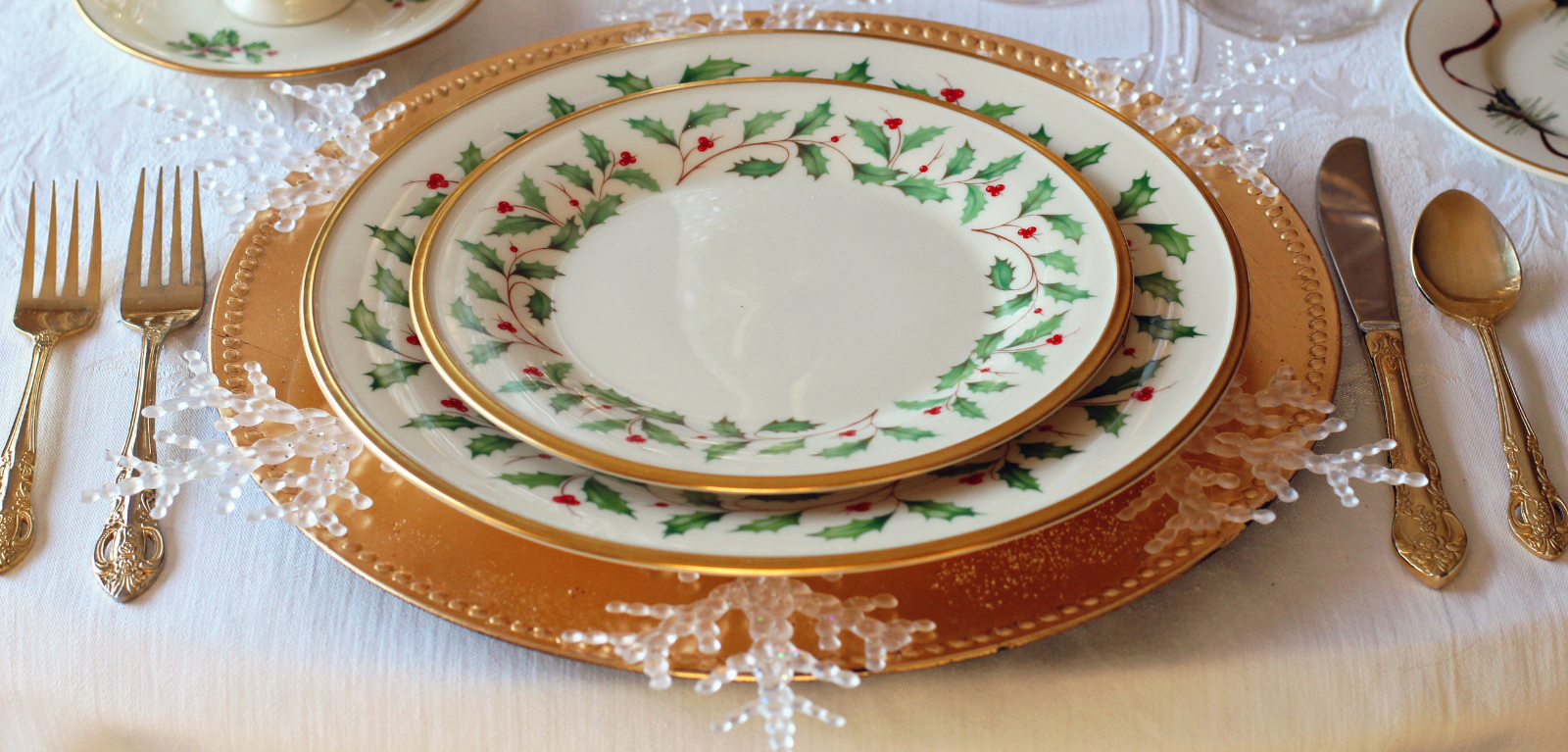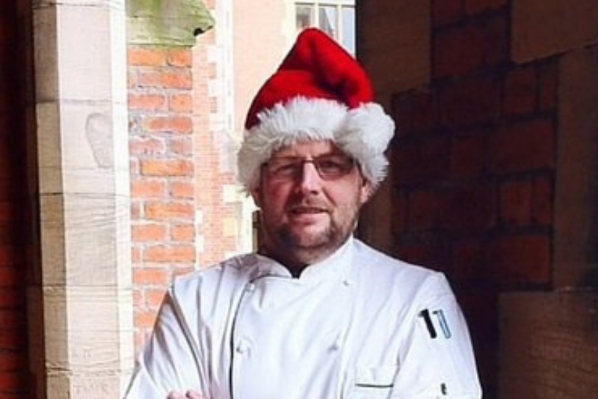BLOG: Queen's Head Chef's top tips for making the perfect Christmas dinner
"You can never be too prepared when it comes to a big meal like this."

A blog by Peter Scobie, Head Chef at Queen's University Belfast.
1. Think practically
Before you plan your menu, consider the size of your oven and the size and number of tins, pans and hob space you need. A large turkey is a big thing to cook, and if you don’t normally cook for the number of people you’re expecting, your largest roasting tray may not be big enough, but a new very large roasting tray may not fit in your oven.
Oh, and don’t forget a new roll of extra-long tin foil – super handy for helping to keep things warm before you serve dinner. Another thing to check is your knives – make sure they’re nice and sharp, as this will make cooking faster and easier.
2. Get organised
You can never be too prepared when it comes to a big meal like this. Make sure you have your menu planned fully and read through all the recipes you are using thoroughly, rereading any instructions that aren’t clear.
Write a list of all the ingredients you are going to need, then cross off the ones you already have. Make sure you’ve got absolutely everything you need, from the obvious like a turkey, potatoes and pigs in blankets, to checking you’ve got enough oil to cook with and plenty of salt and pepper for seasoning too.
Write a prep list of all the jobs you are going to need to do to make the meal. Ticking them off the list as you do them will give you great satisfaction.
Prepare a timeplan for the day with your roasting times and temperatures already calculated, so all the information is in one place and you don’t have to keep on flicking through cookbooks or returning to your computer screen.
3. Run a dress rehearsal
The best dishes are those that you’ve cooked before, so if you’re making a roast dinner in the run up to Christmas, think about the dishes you might like to try on the day and cook smaller versions to give you a chance to get used to cooking them.
4. Get ahead
Do as much as you can as far in advance as you can. The meal will be a lot easier broken down as little jobs over several days than a whirlwind of cooking on Christmas morning while you are also trying to enjoy yourself. Work out what you can make and freeze ahead, and you’ll have a few of the elements to your meal already completed.
Veg is a particularly easy one to get ahead on - peel potatoes, carrots, parsnips and any other veg you’re having and leave them in pans of cold water overnight. This will save you a lot of hassle and additional mess on Christmas morning. If you’ve got enough space in your fridge, you could even pre-cook your potatoes and parsnips on Christmas Eve to save even more time.
5. Enlist some vegetable peelers
If you can, avoid getting tied up scrubbing and peeling potatoes, parsnips or carrots altogether by roping in some children to take on the task. As well as taking the strain off you, they’re more likely to want to eat veggies that they’ve prepared themselves. Cunning!
6. Keep on top of the washing up
Try and keep the veggie peelers on as kitchen porters. If there are helpers to wash up as you work, it will give you more valuable surface space. If you can’t bribe anyone to help you, try and keep on top of it yourself as much as you can. Even if this just means packing the dishwasher before carving the turkey, it’ll ensure you get to relax and enjoy the after-dinner festivities with your family – rather than being chained to a washing-up bowl for an hour after you’ve eaten.
7. For roasties, get the oil nice and hot
No one wants a soggy spud with their Christmas dinner. Dusting them in semolina or flour will help to add a bit of crunch, but the real key is to get the oil in the tray as hot as possible before tipping in the potatoes (don’t let the oil smoke). Try using goose fat for a richer flavour.
8. Try roasting your sprouts
Brussels that are roasted taste completely different to those that are boiled, steamed or microwaved. Roasting them caramelises the natural sugars that are found in the veg, resulting in a much sweeter sprout. Try roasting them with some chestnuts and bacon and don’t be afraid to let them get brown and crispy round the edges.
9. Don’t score your sprouts
If you are going to go ahead and boil your sprouts, there’s no need to score a cross in the bottom – it just makes them more waterlogged. Keep your eye on the timer and don’t go over eight minutes to retain some bite in your Brussels.
10. To stop bits burning, deploy the foil
If the whole turkey is browning too quickly, you can cover it with a loose foil tent. And if it’s just certain bits of the bird, like the legs, then localise your foil wrappings!
11. Let the turkey rest
The heat of the oven forces the juices into the middle of the bird so, once you’ve extracted it from the oven, let the turkey rest for around 20 minutes under some foil before carving it. The juices will redistribute, and you’ll have moister meat.
12. Don’t do too much
Fewer dishes cooked with care and love will always win over lots of dishes cooked badly. Don’t overstretch yourself.
13. Cook the food you like
Don’t feel pressurised into cooking with new ingredients you’ve never tried and may not like just because it’s Christmas; the big day is not the time to have your meal ruined by finding out you hate chestnuts! Choose ingredients and flavour combinations you already like and choose recipes you like the sound of and can visualise eating, rather than traditional recipes or new and trendy ones you feel you should be cooking.
14. Be flexible with your mealtime
Don’t feel you have to race to get things done on time – accidents happen in the kitchen when you’re in a hurry. Think about making the main mealtime later than is traditional and serving or getting someone else to make a late morning brunch earlier in the day to keep everyone going. Eating later in the day buys you more time to cook happily at your own pace, rather than feeling like you’re pushed for time.
15. Cheat eats
Don’t feel that everything has to be homemade. Buy in anything you’re not confident making or anything that is going to lighten the load. Buying the classic condiments and sauces will mean you can give the main offering your undivided attention.
